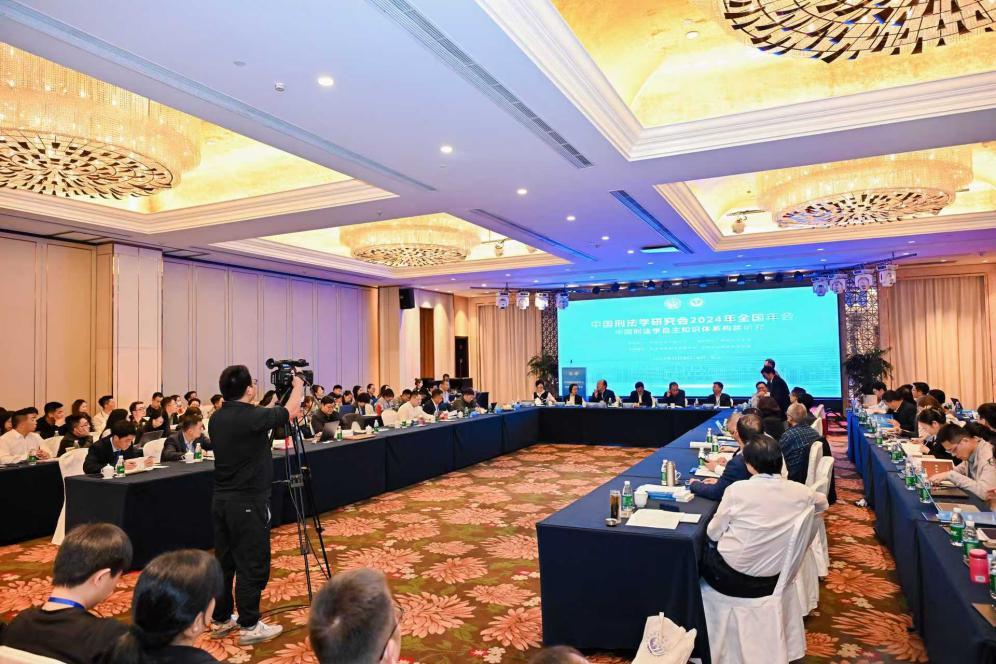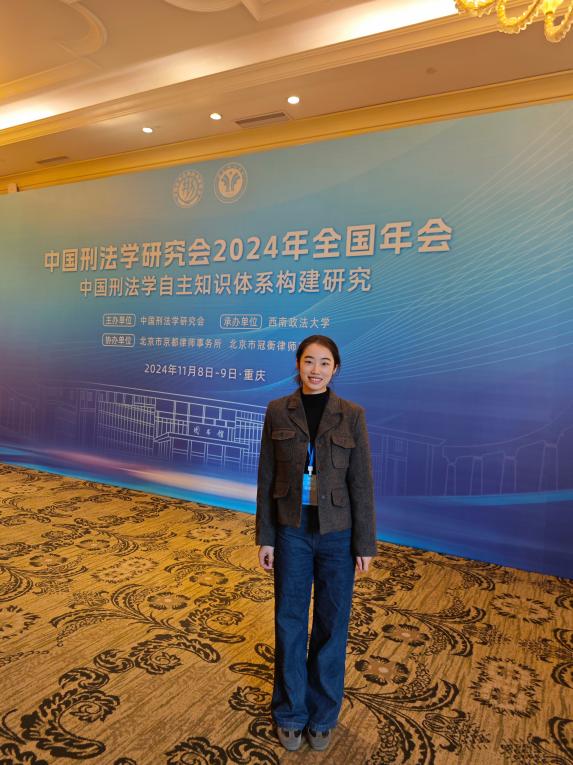
The 2024 National Annual Conference of the Chinese Association of Criminal Law took place from November 8th to 9th at the Southwest University of Political Science and Law. Organized by the China Criminal Law Studies Association and co-hosted by the Southwest University of Political Science and Law, the conference drew over 400 scholars and experts from the fields of criminal law theory and practice. Additionally, the event was live-streamed, attracting an audience of more than 50,000 viewers online.

The conference diligently adhered to and implemented the guiding principles of the 20th National Congress of the Communist Party of China. Centered on the theme, "Exploring the Construction of an Autonomous Knowledge System in Chinese Criminal Law," delegates engaged in profound discussions on five critical theoretical and practical topics: "Foundational Aspects of Establishing an Autonomous Knowledge System in Chinese Criminal Law," "Cutting-Edge Theoretical Issues in Criminal Law," "Interpretation and Application of the 'Twelfth Amendment to the Criminal Law'," "Criminal Law Dimensions in the Revision of the Criminal Procedure Law," and "China's Criminal Justice Governance in the New Era: Insights and Experience." In alignment with the conference's thematic focus, a dedicated forum was also organized for master's and doctoral students nationwide, specializing in criminal law, providing a platform for the exchange of ideas and scholarly development.

He Huiling, a doctoral candidate at the Law School of Beijing Normal University, was extended an invitation to participate in this esteemed academic conference. Her paper titled "Investigating the Identification of Illegal Business Operations in the Context of Similar Business Crimes" was featured in the conference proceedings. The paper primarily focuses on the following themes: The recent amendments to the Criminal Law, specifically the Twelfth Amendment, have refined the application of the crime of illegal business operations in similar industries. As a pivotal element of this crime, horizontal competition behaviors exhibit diverse and intricate manifestations in real-world scenarios, often leading to confusion with other criminal activities. Consequently, a precise understanding of the nature of intra-industry competition is crucial for the accurate application of the crime of illegal business operations in similar industries. In practice, intra-industry competition manifests in various forms, including business transfers, upstream resource reselling, and the addition of transactional layers, all of which can intensify the conflict of interest between corporate managers and owners to varying degrees. The determination of intra-industry competition must be guided by the interests of the company and the enterprise, with a firm grasp on the core judgment criterion of "damaging the interests of the company and the enterprise." Only when an individual's competitive actions genuinely harm the interests of the company and the enterprise, can a crime be established. The identification of intra-industry competitive behavior straddles both corporate and criminal law. Its regulatory approach must align with the governance principles of preceding laws such as corporate law, satisfy the criminal law's requirement to punish offenses, and ensure the precision and fairness of penalty application. In the current landscape where both the Company Law and the Criminal Law are undergoing substantial revisions, the practical challenge of fostering effective coordination and synergy between these two bodies of law is an urgent matter that demands attention. A thorough analysis and precise identification of intra-industry competition within the framework of similar business crimes is not only pivotal to enhancing the accuracy of legal application but also a vital component in advancing the harmonious development of corporate and criminal law.

